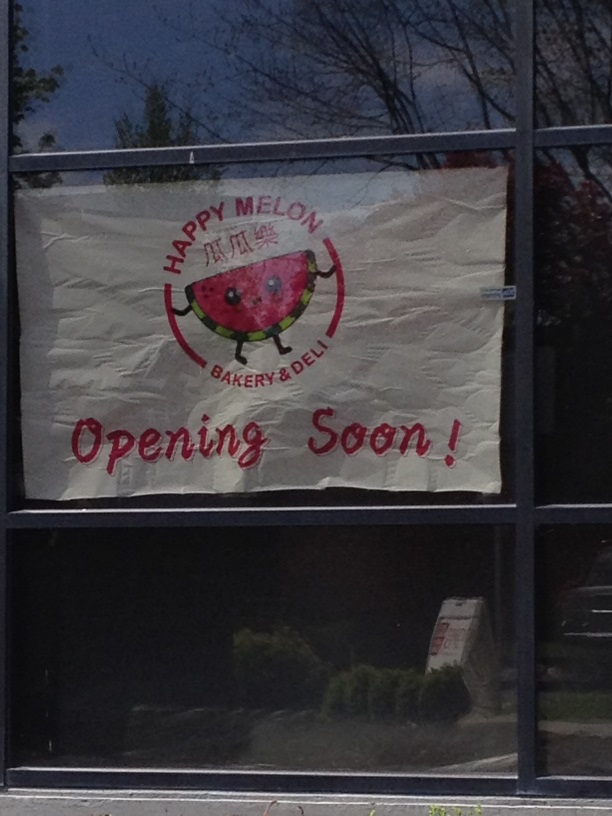Father’s Day is this Sunday, which means greeting-card companies would like you to start thinking about why you love your dad. Is is because he can fix everything and out-golf his buddies? Because he’s a sharp dresser and an unbelievably talented backyard cook? The cards may say so, but it’s far more likely you love your dad because he let you win at gin rummy or picked you up from school when you had an ear infection. Supposedly manly qualities like brawn and business acumen probably have very little to do with it.
In that spirit, Zephyr Paquette’s Skelly and the Bean forces eaters to rethink what they value in restaurants. If you dine out because you want to savor fantastic food that exerts a season-finale-like hold on your taste buds, or because you like to spend an hour or so fantasizing that you’ve acquired a fawning staff of valets and footmen, you may not be swayed by the community-oriented charms of Skelly and the Bean, which brings to mind a neighborhood kid’s cardboard fort, albeit with a menu.
“Look what I made!” Paquette recently crowed through the kitchen window when a friend arrived for his first meal. Here, Paquette was using the commoner’s “I,” since she readily admits the Capitol Hill eatery is a group project. Skelly and the Bean got its start—and its odd name, which sounds more like a Pixar film than a dinner destination—when a 7-year-old acquaintance gave her $10 and told her to get cracking on a restaurant.
With Skelly and his kid sister Bean on board, Paquette began to solicit the friends she’d acquired during a decade of cooking in Seattle restaurants, including Cafe Flora and Dandelion. She asked for money, furniture, and free labor, and she got all of it. Using the tens of thousands of dollars collected for memberships (glorified $1,500 time-bound gift certificates, sold for $1,000 a pop), Paquette moved into the 10th Avenue East corner shop that’s been serially vacated by Cassis, Tidbit, and Easy Joe’s. The space wasn’t in wash-and-wear condition, so members offered to paint the walls. A sous chef deck-brushed the floor. Soundgarden contributed a table tattooed with a cigarette burn.
“The banks are not a fan of me,” Paquette explained to Voracious last month. “So my only option was to do it differently. I’m very fortunate. People bought memberships and they came in and painted; they cleaned cow shit off of these boards and they nailed them up.”
The donors names’ are immortalized on a prominently hung board (which sports not a trace of bovine manure) with groovy Fillmore Auditorium lettering. And their aesthetics are apparent in the rectangular room’s found decor: Arranged otherwise, the wooden chairs, Formica-topped tables, wicker bread baskets, and triangular black plates could function as a fairly comprehensive exhibit on 20th-century kitchen-design trends. To make clear that the jumble’s meant to be idiosyncratic rather than just plain pell-mell, clouds are painted on the sky-blue ceiling.
But the cash contributors and volunteer drudges left the culinary say-so to Paquette, who seems to have assembled a collection of what she likes to cook and eat. The menu’s arranged in three sections—”Start Here,” “Then Try,” “Finish With”—but it’s sometimes difficult to elegantly connect the dots. Other than two simple salads, the only starter choices are protein bombs: deviled eggs bundled in pork, sausage from local producer Link Lab, and a salami sampler. It’s as if no one stopped to imagine what a diner might do here.
Still, that’s a failure of foresight, not customer care. Service at Skelly is terrifically engaged, if not always totally informed. Asked which wine would pair best with a recommended chicken dish touted as a top seller, our server had to pussyfoot back to the bar. But the staffers all come across as genuinely nice people—who else would clean the boss’ floor on a day off?—eager for the intimacy that a stone-soup endeavor spawns. You get the sense that you’re not supposed to leave until you and your server have developed a private joke to quote on future visits.
Humor’s very near the surface at Skelly, and it doesn’t always benefit Paquette’s generally competent WYSIWYG dishes. Take those deviled eggs with their piggy membranes: They’re sold as ham and eggs. Get it? Unfortunately, what the guest gets is a strangely elastic white in a leathery, salty pink sheath, heaped high with a mustardy yolk. One egg is bearable; a serving of three colossal eggs feels like it’s pushing the pun.
Wit also backfires on a dish titled “Half (secret—shh) chicken.” The chicken’s secret is it’s got a juniper sausage stuffed under its skin. Pigs and chickens are rarely friendly in the barnyard, and the coupling isn’t any more successful on the plate: The sausage’s seasonings clash with the chicken, and the added meat appears to have thrown off the bird’s roasting time. The inner meat is petal-pink and blood has pooled around the bones. Moving from comedy to irony, the dish would get on just fine without the pork: The chicken’s meat is tender, its skin crisp. The accompanying side dishes—a mound of sautéed kale and wrinkly fingerling potatoes, satiny and generously salted—are on target.
Paquette’s favorite way to prepare potatoes is to mash and then fry. Her Petit Paquets are perfectly formed crunch-fronted barrels of custardy taters, but a coarser filling would be more interesting to eat. The paquets come standard with the burger, made from flavorful beef that can stand up to the rare finish that the kitchen prefers. Seated on a soft square bun, the burger doesn’t need its “bacon weave”—a pork potholder that’s crumbly and dry.
When Skelly plays it straight with its impeccably sourced ingredients, the payoff can be handsome. Tuna from the Seattle-based fishing vessel St. Jude, sunk into a hill of quinoa seeded with sweet green muscat grapes, is fleshy and clean. Spring’s sylphlike ambassadors, asparagus and ramps, both appear in a roasted salad bedecked with discs of raw radish and a hunk of oozy Dinah’s cheese. A scraggly salad of miner’s lettuce with sorrel and apples is equally lovely.
On Mondays and Tuesdays, Paquette turns over her restaurant (which she refers to as an incubator) to kitchen-less chefs who are playing with various concepts. General manager Jef Fike has hosted an African dinner and Bo Maisano’s cooked ramen. The series is the ultimate expression of Paquette’s commitment to Seattle’s food community and the fans who’ve bonded on her watch. While Skelly isn’t yet quite good enough to make you wish you lived in its neighborhood, it’s already the kind of restaurant you wouldn’t mind having in yours.
Price Guide
Ham and eggs $8
Salad $10
Half chicken $24
Tuna $24
Burger $15








